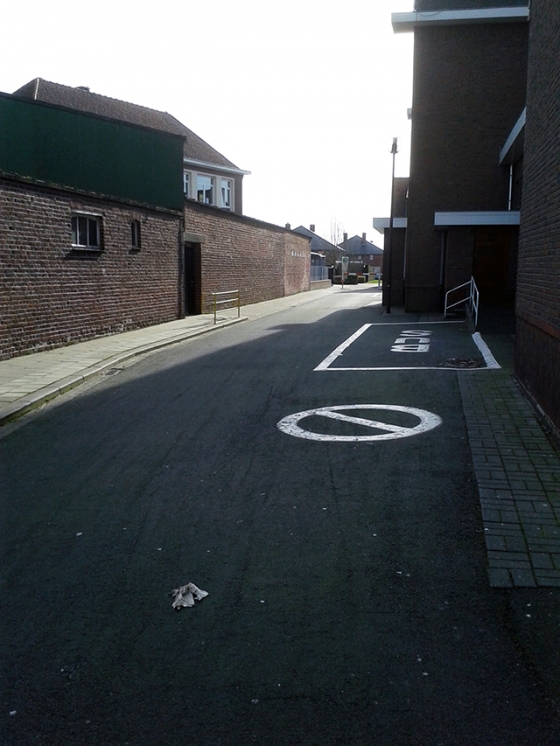Unlocking the potential of collective spaces in All City/All Land. Defining a theoretical framework and exploring an attitude for intervention in the dispersed territory.
This research focuses on the collective spaces in the dispersed urban condition of Flanders, a condition we started to name All City/All Land. The aim of the research is to develop a theoretical understanding of these collective spaces in the dispersed urban condition and to develop an attitude for design interventions.
Recent discourses of transformation of contemporary cities in a European context have replaced the traditional dichotomy between urban and rural by a new paradigm of urbanity, a paradigm not to be understood in the Flemish context as an accident, as sprawl, but as a deliberate long term economic, social, and political project of an urbanisation in a manmade landscape. The interpretation of All City/All Land as an urban paradigm ultimately leads to the question whether living together in this specific urban form is also given shape through the public space such as in the traditional city. But where the theoretical understanding of these territories of dispersion is rooting in a long tradition of research, practices on public spaces are still too often referring to the dichotomy urban/rural. In this All City/All Land, it became clear that the lens of the traditional city cannot be used and ultimately leads to an Agraphia & Dyslexia, or a state of incorrect reading and writing.
In a territory that is used in a complex, individual, non-hierarchical and above all ad-hoc way, the frameworks of public/private spaces are obsolete and contradicted by the enormous variety of so-called collective destinations, places that give a structure to the territory through the memory and act as reference point but remain undetected when applying the public/private frameworks.
Picking up the question of how the places for living together in All City/All Land are shaped, the question on intervention is put on the table. Through the research three types of spaces were detected, each of them with a particular attitude and momentum for intervention, each of them addressing a different question. These spaces relate to either to the consolidated public spaces such as the church square, the contemporary forms of collective destinations, or too new to develop collective spaces referring to larger societal changes. For each of them this research proposes an adapted attitude, not as a checklist but as potential vocabulary. This vocabulary is an optimistic vocabulary that builds upon the qualities in the dispersed territories and seeks to valorise them however without being blind for the challenges ahead. It is a vocabulary focussing on the small and middle scale as an appropriate scale for intervention. It focusses on the open spaces of All City/All Land, as those spaces that are a key in the understanding of the dispersed territories and defines a new shape for them in order to express this new form for this city.
PhD project, Maarten Gheysen (prom. prof. Kris Scheerlinck, co-prom. Erik Van Daele)

Comments are closed.